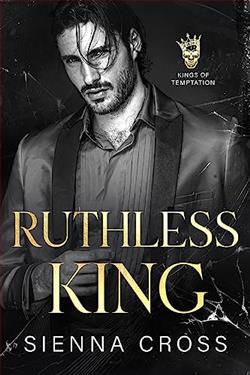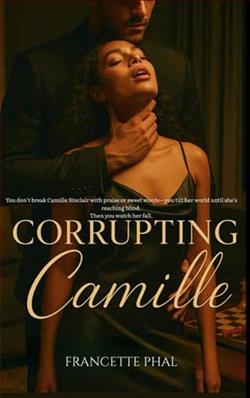Page 12 of Coram House
She taps a pen against her lips. “Well, the city records would be your best bet for that.”
“Yes, well, these deaths might have been suspicious. So I was hoping to see if there’s ever been a police investigation.”
She pulls a sticky note off a stack and looks at me, pen poised. “What’s the name of the deceased and the date?”
“Well, that’s the other thing,” I say, starting to feel stupid for coming here. “It’s only a first name. Thomas or Tommy. But he would have been around ten years old. And it happened up at Coram House.”
Her friendly expression is still there, but now there’s something else behind the smile. “I see,” she says. “Could you give me your name?”
“Alex Kelley.”
“Please, wait here a moment, Ms. Kelley.”
Bev gestures to the plastic chairs in the corner set among a jungle of potted plants. Then she opens the glass door that separates the reception area from the rest of the station. There’s a brief swell of noise—laughter, a phone ringing—and then the door seals shut behind her.
I take a seat, wanting to be seen as following directions, but also because it affords the best view of the office beyond. The station is nothing special—stained drop ceilings, metal desks, chipped fake wood paneling. But behind all that, huge windows frame a spectacular view of the bay, frozen solid as far as I can see.
Bev stops before a desk and starts making dramatic, sweeping hand gestures that I hope have nothing to do with me. I crane my neck to see her audience, but it’s no use, her body is in the way. A few seconds later, the glass door swings open again. This time, Bev is trailed by an officer in a navy blue uniform.
I’d put him in his early forties. He’s good-looking in a tall, dark, and stubbly way. His brown hair is peppered with gray and he has a long straight nose straight off a Roman coin. But it’s his eyes that are arresting—light brown with a circle of gold around the iris. Unfortunately, they’re glaring at me. I get the distinct feeling that I’m not about to be offered a cup of coffee and a free pass into their historical records.
“Alex Kelley,” he says, “I’m Officer Russell Parker. Please come with me.”
He holds the door open for me, but the vibe isn’t so much chivalrous asangry principal inviting you into his office.
I follow him to a desk tucked in one corner of the open-plan room, right up against one of the big windows. He motions for me to sit in the chair with the view of the water. I wonder why he doesn’t turn the desk around.
“So, you’re the writer.” He says it both like he was expecting me and like he’s not happy about it.
“Well,” I say, “I’mawriter.”
He doesn’t smile. I clear my throat. Better to jump in. “I’m looking for historical records about Coram House. Specifically any investigation around a suspicious death or deaths that would have happened sometime in the late 1960s.”
“Up at the House.”
“Sorry?” I ask, thrown off.
“Coram House. That’s what people called it. The House.”
He leans back in his chair and taps a pen against the arm, impatient.
“Oh,” I say, fumbling, “I didn’t know.”
No matter how much research you do about a place, there’s certain knowledge that no one ever thinks to write down.The House.
“How could you know?” he asks. “You’ve been here—what—a week?”
“Ten days, actually,” I say. “Including today.”
He ignores me. The dynamic is clear. The out-of-town writer swooping in. The local cop protecting local secrets.
“I looked you up,” he says. “Even read your last book—the one about that lifeguard. My money was on the brother.”
The usual greasy ball of shame slides up my throat. I swallow it and force my eyes to meet his. “Mine too,” I say. “Too bad he didn’t kill her.”
“Sure made a good story, though.”
Behind him, the lake is a gray mirror. I should be better at this, given how many times I’ve had some version of this conversation over the last two years. With journalists. With my agent. With myself.















